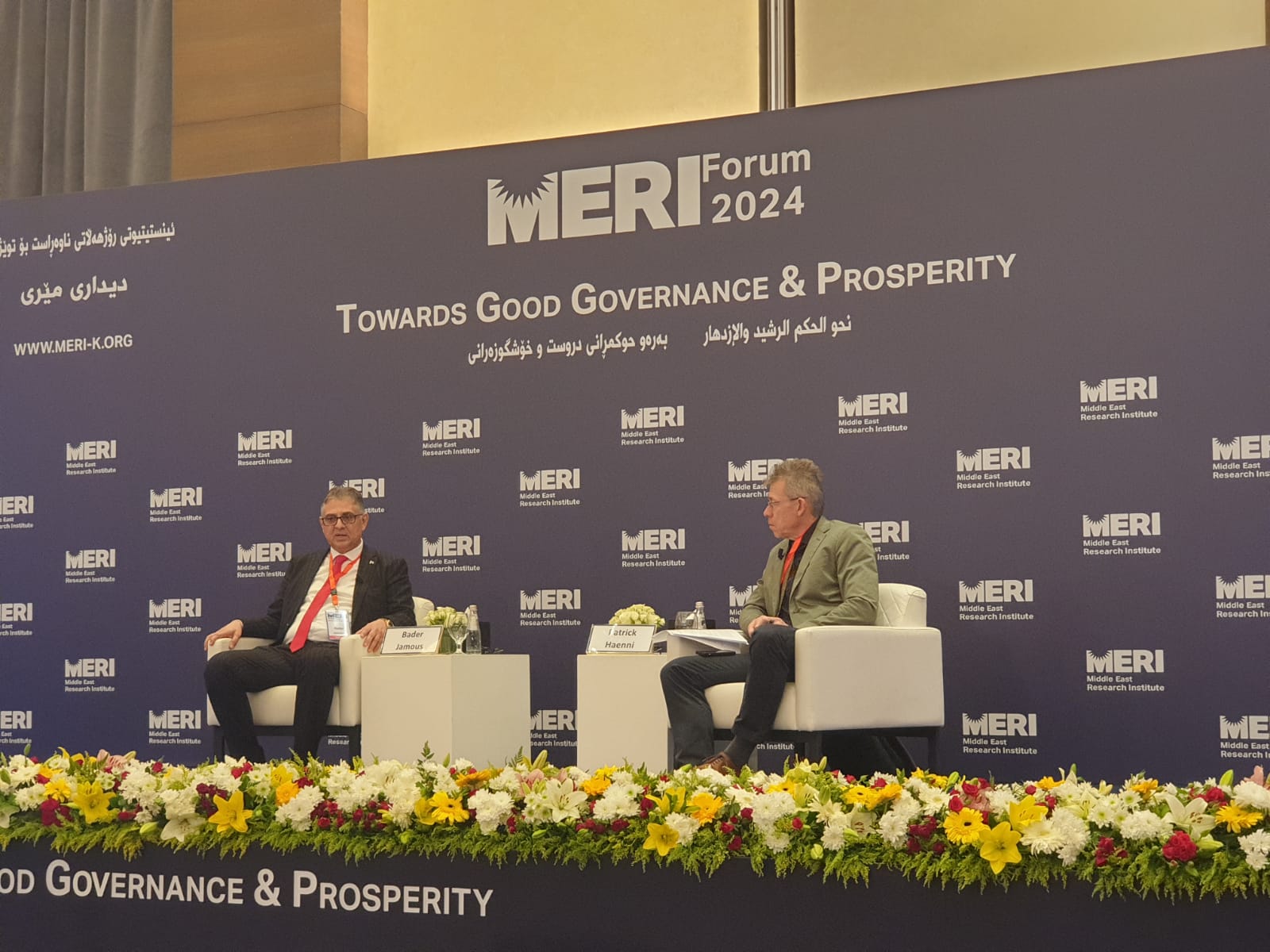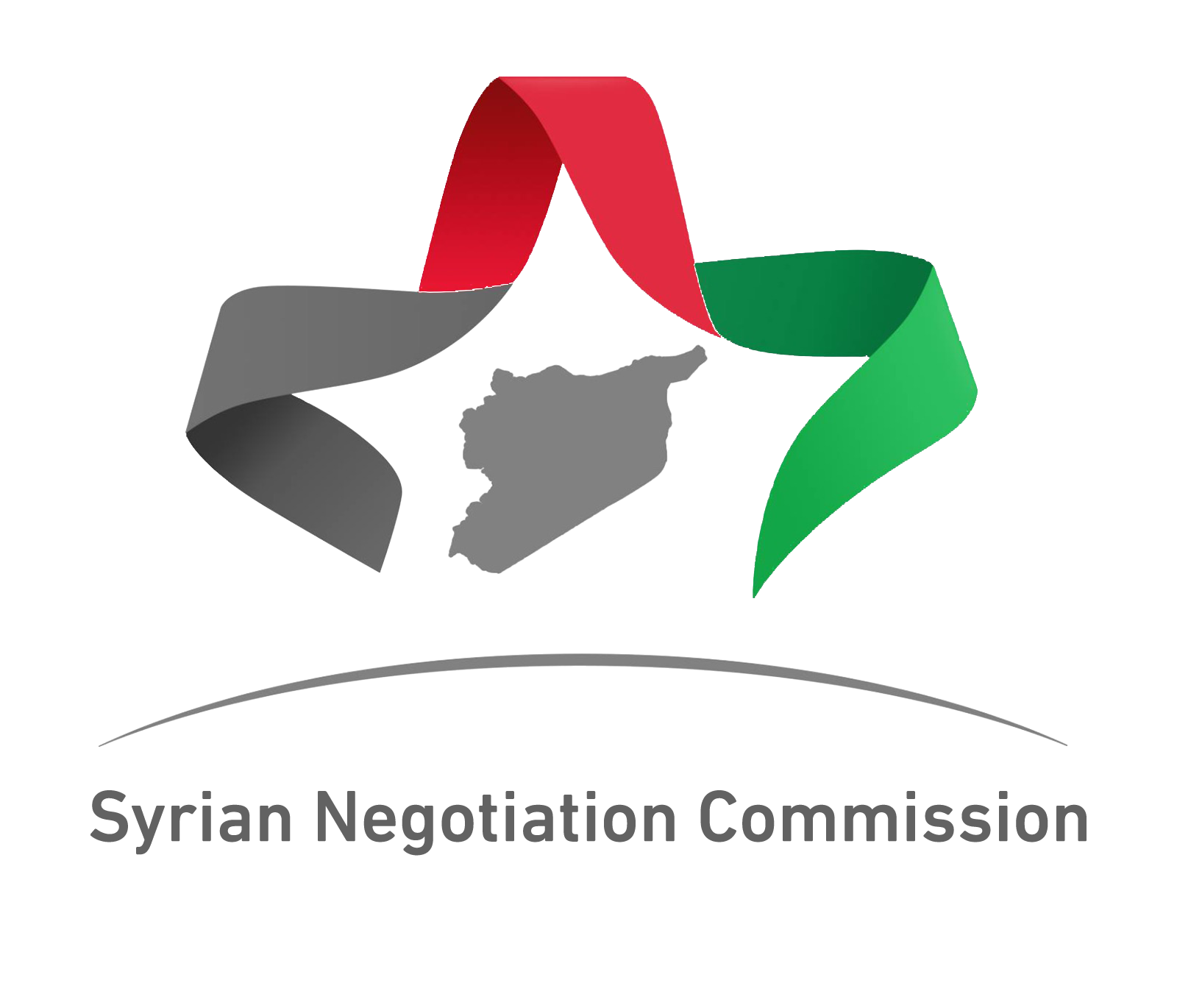President of the Syrian Negotiation Commission at “Middle East Forum 2024”:
The Arab League Has the Capacity to Advance the Political Solution

October 30, 2024
During his participation in the “Middle East Forum 2024” held in Erbil today (Wednesday), Dr. Badr Jamous, President of the Syrian Negotiation Commission, expressed his strong belief that Arab nations collectively possess the capability to advance the political process regarding Syria. He urged the Arab League to convene an international conference dedicated to Syria, aimed at facilitating the political process in accordance with international resolutions.
In a session titled “The Future of Syria: Prospects for Peace and Reconstruction,” moderated by Patrick Haeni, an advisor at the Center for Humanitarian Dialogue, Dr. Jamous emphasized that the Syrian Negotiation Commission is the official body recognized by the United Nations for negotiating Syria’s future. He stated that the Commission represents all Syrians, focusing on their collective interests rather than those of a select few. The Commission is committed to finding a fair political solution that addresses the needs of all segments of the Syrian population and aims to establish sustainable peace through a new social contract that prevents the recurrence of war and the tragic years that have plagued the country.
Addressing the prospects for normalization with the Syrian regime, Dr. Jamous noted that the normalization efforts of some countries have yielded no tangible benefits. He asserted that Arab openness, without a fundamental shift in the Syrian regime’s policies and its commitment to a political solution, holds little meaning. He highlighted the lack of progress on normalization issues, despite the 17 months since Syria’s return to the Arab League.
Dr. Jamous stressed that the Syrian regime cannot be relied upon, as it consistently evades political solutions and reneges on promises made to both Arab and foreign nations. He emphasized that the regime neither desires nor is capable of enacting meaningful change, as it requires profound transformations in Syria to build a new state. Additionally, he pointed out that the regime’s refusal to collaborate with the Syrian people undermines any potential for progress.
He firmly stated that the Syrian issue has never been solely humanitarian—neither before nor after the revolution—but is fundamentally a political struggle for a people seeking their rights and rejecting an oppressive, authoritarian regime.
The Commission believes that the solution to the Syrian crisis can only be achieved through UN and international resolutions. Dr. Jamous expressed hope for a unified Arab plan from the Arab League that would compel the regime to engage in the political process in line with international resolutions. He urged Arab nations to act collectively rather than individually in pursuing normalization with the regime, emphasizing the need to push for the regime’s responsiveness to the demands of the Syrian people.
Dr. Jamous conveyed his conviction that Arab countries, when united, have the potential to achieve this goal. He called for the organization of an international conference focused on Syria to facilitate the political process in accordance with international resolutions and criticized the Arab League’s lack of communication with all relevant parties.
He affirmed that Turkey remains a strategic ally of the Syrian opposition, highlighting ongoing dialogues with opposition groups prior to and during their interactions with the Syrian regime. He noted that Turkey has made it clear it will not engage in unconditional normalization with the regime, emphasizing the necessity of pursuing a political solution, drafting a new constitution for Syria, and conducting elections as per UN Resolution 2254. Dr. Jamous pointed out that the regime is aware that these Turkish conditions are serious and necessary, which is why it avoids dialogue with Turkey. He reiterated that the Syrian Negotiation Commission is dedicated to adhering to UN resolutions and is committed to implementing Resolution 2254 comprehensively and rigorously. The Commission welcomes any joint Turkish-Arab-international initiative aimed at advancing the political solution in line with these resolutions, noting that resolving the crises of all involved nations in Syria is intrinsically linked to a comprehensive political resolution.
Dr. Jamous praised the recent movement in Sweida, stating that it has reignited after 12 years. He noted that this resurgence began following the return of Syria’s seat in the Arab League to the regime. This movement seeks to implement UN Resolution 2254 and demonstrates that the spirit of resistance is renewed, unyielding, and persistent. The Syrian people have nothing left to lose; they have already paid the highest price for their rights and will not surrender or retreat. He warned that if no political solution is reached in accordance with international resolutions, violence and crises will continue unabated. The combination of poverty, lack of trust in the regime, absence of a political resolution, and the regime’s ongoing oppression will only drive Syria further into turmoil unless a comprehensive plan is put in place.
The “Middle East Forum 2024,” organized by the Middle East Research Foundation, convenes a significant number of influential officials and politicians at both regional and international levels. This annual event serves as a platform for political dialogue, focusing on current policy priorities, the ever-changing regional dynamics, and opportunities for international cooperation. It brings together local, national, and international policymakers, academics, opinion leaders, and civil society activists to foster collaboration and dialogue on pressing issues.
